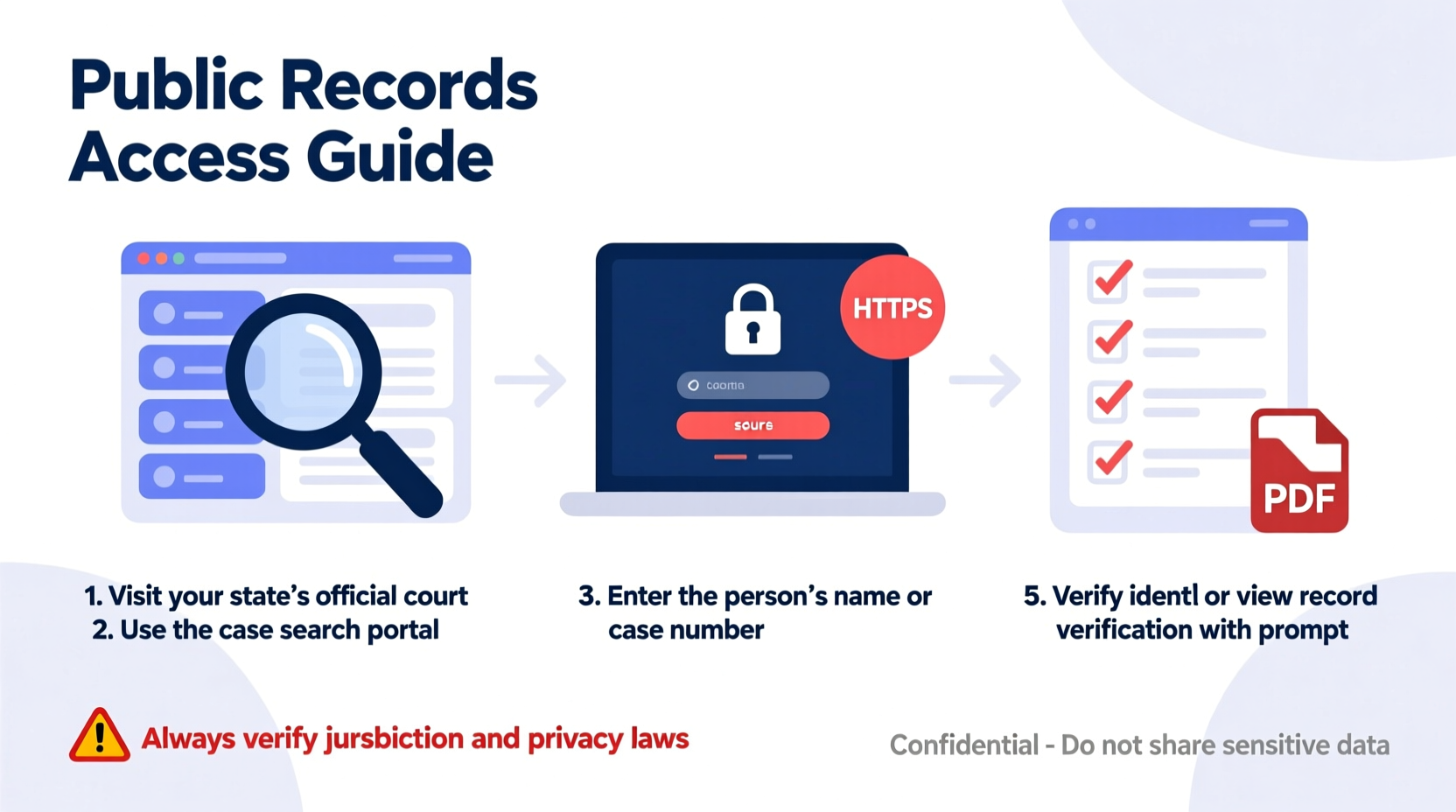Discovering whether a warrant has been issued—whether for yourself, a loved one, or someone you're researching—can be both urgent and sensitive. Warrants are part of the public record in most jurisdictions, but accessing them requires care, accuracy, and awareness of legal boundaries. Missteps can lead to misinformation or even unintended legal consequences. This guide provides a clear, lawful pathway to finding warrant information while protecting your privacy and staying compliant with local regulations.
Understanding Warrants and Public Records

A warrant is a legal document issued by a judge or magistrate that authorizes law enforcement to make an arrest, conduct a search, or seize property. There are several types, including arrest warrants, bench warrants (often issued for failure to appear in court), and search warrants. While not all warrants are immediately visible to the public, most criminal arrest and bench warrants become part of the public record once filed.
Public records laws vary by state and country, but in the U.S., the Freedom of Information Act (FOIA) and state-level open records laws generally allow citizens to access non-sensitive government documents, including certain court records. However, juvenile records, sealed cases, or active investigations may be restricted.
“Access to public records is a cornerstone of transparency, but it must be balanced with privacy and due process.” — Sarah Lin, Civil Rights Attorney and Legal Transparency Advocate
Step-by-Step Guide to Looking Up a Warrant
Finding warrant information involves methodical research and attention to jurisdictional details. Follow these steps carefully to ensure accurate and safe results.
- Determine the correct jurisdiction: Warrants are issued at federal, state, county, or municipal levels. Start by identifying where the person lives or where the alleged offense occurred. For example, a traffic-related bench warrant would likely be in the county where the court appearance was missed.
- Check official court websites: Most counties maintain online court record databases. Search for “[County Name] + [State] + court public records” or “warrant lookup.” Many sites offer free searches by name, date of birth, or case number. Examples include Los Angeles Superior Court’s eAccess system or Harris County, Texas’ Warrant Search portal.
- Use statewide judicial portals: Some states centralize access. The New York State Unified Court System, Florida Courts E-Filing Portal, and California’s MyCOURT service provide searchable databases across multiple counties. These are often more reliable than third-party sites.
- Contact the local sheriff’s or police department: Some agencies publish active warrant lists online. Others require an in-person or phone inquiry. Be prepared to provide full name, date of birth, and possibly the last known address. Note: Law enforcement may not disclose sensitive details over the phone.
- Visit the courthouse in person: If online options fail, visiting the clerk of courts office allows direct access to physical or digital records. Bring valid ID and know the exact name and spelling of the subject. Request assistance from the public records desk.
- Consider federal warrants (if applicable): For federal offenses, check the U.S. Marshals Service’s fugitive database or contact the nearest U.S. District Court. Federal warrants are less commonly searched by the public but are accessible through proper channels.
Do’s and Don’ts When Accessing Warrant Records
| Do’s | Don’ts |
|---|---|
| Verify information across multiple official sources | Assume a match is accurate without confirmation |
| Use official .gov or court-operated websites | Rely solely on commercial background check services |
| Respect privacy—only access records for legitimate purposes | Use warrant information for harassment or intimidation |
| Document your search process and sources | Share personal details found in public records on social media |
| Consult an attorney if you find a warrant involving yourself | Ignore a warrant or assume it will expire on its own |
Real Example: Resolving a Missed Court Date
James, a resident of Maricopa County, Arizona, forgot about a minor traffic citation court date. Months later, he was pulled over for a routine check and arrested due to an active bench warrant. Confused and concerned, he later learned he could have checked the Maricopa County Superior Court’s online portal before the incident. After resolving the case with a fine and community service, James now sets calendar reminders for all legal matters and recommends others use the free warrant search tool provided by the county.
This scenario underscores how easily a small oversight can escalate—and how proactive public record checks can prevent serious disruptions.
Recommended Tools and Resources
- Court Websites: Use official domains ending in .gov or .court.[state].us
- Public Records Portals: States like Texas (txcourts.gov) and Ohio (supremecourt.ohio.gov) offer centralized access
- County Sheriff Warrant Lists: Often updated weekly; available on sheriff’s office websites
- Legal Aid Services: Free or low-cost help interpreting records and next steps
FAQ: Common Questions About Warrant Searches
Can I look up a warrant for free?
Yes, most government-run court and law enforcement websites offer free warrant searches. Avoid third-party sites that charge fees for basic public records—they often aggregate data already available at no cost.
How long does a warrant stay active?
In most cases, an arrest or bench warrant remains active indefinitely until resolved—meaning it won’t expire even after years. Some jurisdictions may review old warrants periodically, but relying on expiration is risky.
What should I do if I find a warrant for myself?
Do not ignore it. Contact a criminal defense attorney immediately. In many cases, attorneys can arrange a voluntary surrender or negotiate resolution without arrest. Self-reporting often reflects positively in court.
Action Plan: What to Do After Finding a Warrant
If you discover an active warrant, follow this checklist to respond responsibly:
- Confirm the warrant details: Full name, DOB, issuing court, and charges
- Preserve any related documents: Citations, court notices, or prior filings
- Consult a qualified attorney licensed in the relevant jurisdiction
- Follow legal advice—this may include turning yourself in, requesting a hearing, or filing a motion to quash
- Keep communication respectful and factual if interacting with law enforcement
“People often panic when they learn about a warrant, but the best outcomes come from calm, informed action—not avoidance.” — Marcus Reed, Criminal Defense Lawyer, Portland, OR
Conclusion
Looking up a warrant doesn’t have to be intimidating. With the right approach, you can access public records safely, accurately, and lawfully. Whether you’re checking your own status or conducting responsible research, always prioritize official sources and understand the limits of public data. Knowledge is power—but only when used wisely and ethically.









 浙公网安备
33010002000092号
浙公网安备
33010002000092号 浙B2-20120091-4
浙B2-20120091-4
Comments
No comments yet. Why don't you start the discussion?